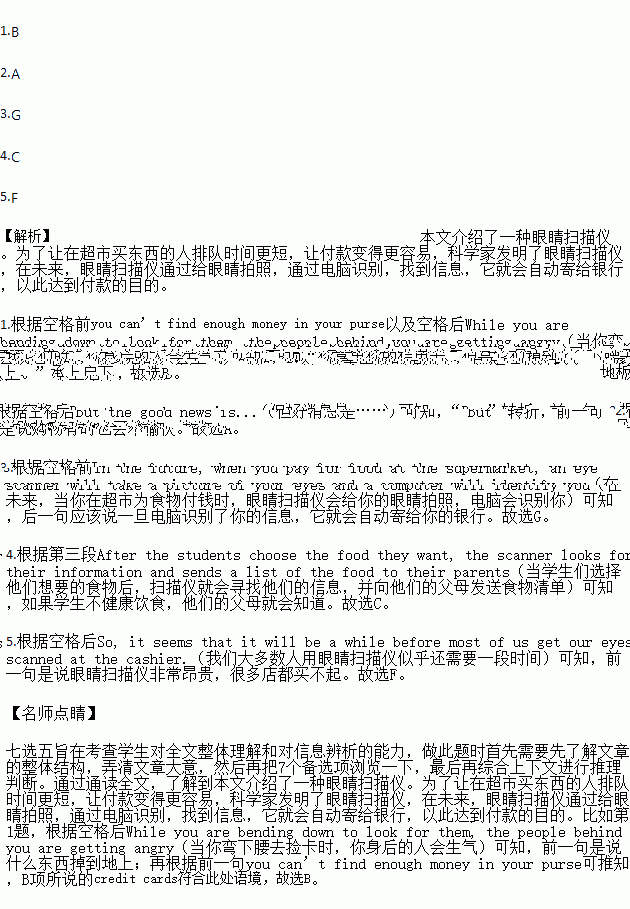题目内容
You wait in a long queue in the supermarket, but when it’s finally your turn to pay, you can’t find enough money in your purse. 1. While you are bending down to look for them, the people behind you are getting angry. The cashier is pounding her fingers impatiently on the counter.
2. But the good news is: scientists have thought of a way to make queues shorter and paying for things easier. They have invented an eye scanner. In the future, when you pay for food at the supermarket, an eye scanner will take a picture of your eyes and a computer will identify you. 3.
Students at Venerable Bede School, England, have already got an eye scanner in their cafeteria. After the students choose the food they want, the scanner looks for their information and sends a list of the food to their parents. 4. Also, parents pay for the meals at the end of the week, so the students don’t have to take money to school and wait in long queues to pay for their lunch.
If all shops had eye scanners, shopping would be easier. 5. So, it seems that it will be a while before most of us get our eyes scanned at the cashier.
A. Sometimes shopping can be unpleasant.
B. You take out your credit cards, but they fall on the floor.
C. If students aren’t eating a healthy diet, their parents will know.
D. Stores are trying several new ways to get shoppers to spend more.
E. Parents are urging the government to introduce better security safeguards.
F. However, eye scanners are very expensive and many shops can’t afford them.
G. As soon as the machine finds your information, it will send it to your bank which pays for your food automatically.
 天天向上一本好卷系列答案
天天向上一本好卷系列答案 小学生10分钟应用题系列答案
小学生10分钟应用题系列答案

 ry 5. (care) with our choice of a friend. We should choose those people with a good character as our 6. (friend), but we must try to avoid making friends 7. a bad man. Besides, we should forgive their mistakes and try to help them as much 8. possible.
ry 5. (care) with our choice of a friend. We should choose those people with a good character as our 6. (friend), but we must try to avoid making friends 7. a bad man. Besides, we should forgive their mistakes and try to help them as much 8. possible.